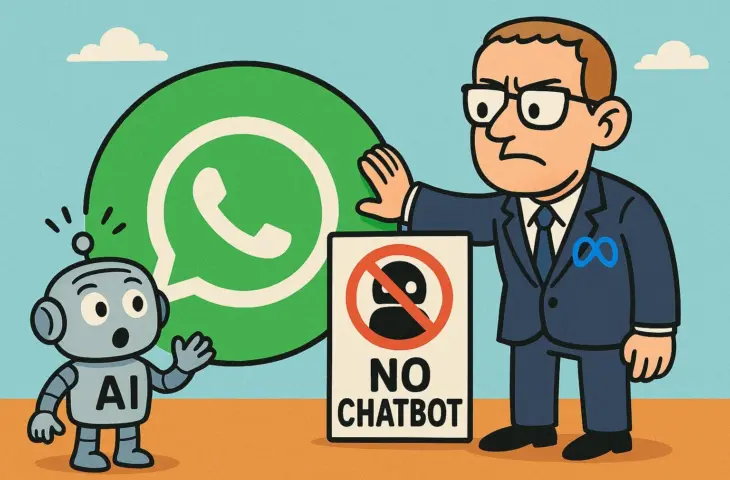Chatbots for ‘general use’ will no longer be welcome on WhatsApp from January 2026. Meta will only allow chatbots that it can profit from.
WhatsApp is adjusting the house rules for its Business APIs, the platform that allows companies to bring their communication tools to the messaging app. The adjustments apply to AI applications for ‘general use’, such as ChatGPT. These may no longer be welcome on WhatsApp from January 15, 2026.
Meta has added a new paragraph to the API terms and conditions aimed at AI providers. It clearly states that WhatsApp will no longer serve as a distribution platform for chatbots and AI services that it considers to be for general use. Companies that use a chatbot for customer service may still offer it via WhatsApp.
Own Chatbots First
With the amended terms of use, Meta is targeting its AI competitors. OpenAI, Perplexity, and other companies offer integrations of their models in WhatsApp, for purposes including answering messages and creating images.
According to WhatsApp, these integrations are a continuous burden on the platform. An additional disadvantage for Meta is that these integrations slip through the cracks of paid API services, so the company earns nothing from the presence of ChatGPT on its messaging app.
From January 15, 2026, external chatbots will therefore no longer be welcome on WhatsApp. Meta’s own Meta AI, which has also been available in the European Union since this spring, will thus have free rein on WhatsApp. Meta even wants to use its AI tool for personalized advertising. Anyone who uses Meta AI should be aware that the AI assistant has no secrets from the parent company.
read also
Meta AI in WhatsApp Will Use your Interactions for Advertising
No Response
WhatsApp is introducing further restrictions. A personal or business contact will only be able to send you a limited number of messages if you never reply to them. WhatsApp wants to save users from spam and overflowing inboxes with unread messages that have little value. The limit has not yet been determined.
